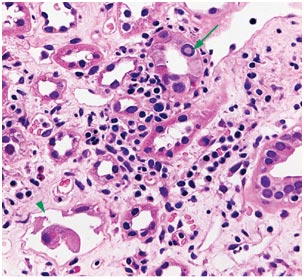
Advicenne, a late-stage biopharmaceutical company focused on the development of paediatric-friendly therapeutics for the treatment of orphan renal and neurological diseases, announces that the European Union has granted orphan drug designation to its lead candidate ADV7103 for patients with distal Renal Tubulopathy Acidosis (dRTA). ADV7103 is currently in a pivotal phase III trial in Europe in children and adults with dRTA with the results from this study expected in the coming months.
ADV7103 is an innovative oral formulation that has the potential to become the first medicine to address dRTA, a disease that leads to an unbalanced pH in the body that causes various complications such as hearing loss, failure to thrive, rickets (a condition that affects bone development in children) and renal impairment, ultimately leading to renal failure.
ADV7103 is designed to manage the disease in children for whom the cause is genetic as well as in adults that have acquired the disease as a result of an autoimmune disease. There are an estimated 30,000 to 50,000 patients with dRTA in Europe, both with the genetic and acquired forms of dRTA.
ADV7103 is a paediatric-friendly, fixed dose, prolonged-release coated granule that combines two active pharmaceutical ingredients specifically formulated for a 12-hour absorption. The product is tasteless, easy to administer orally in either young children or adults and only requires 2 doses per day to achieve 24-hour efficacy. Advicenne believes that ADV7103's bespoke formulation could improve compliance and the treatment outcomes for patients with dRTA.
Dr Luc-André Granier, CEO of Advicenne, commented: "The orphan drug designation that has just been granted by the European Union is a significant milestone for our team. It has come at a very appropriate time as we will be presenting preliminary clinical data in September at the European Society of Paediatric Nephrology (in Glasgow, UK). We believe ADV7103 could be a major advance in the treatment of dRTA and look forward to making a significant improvement to the lives of patients with this devastating renal disease."
Distal Renal Tubulopathy Acidosis (dRTA) is a disease characterised by a failure of acid secretion by the alpha intercalated cells of the cortical collecting duct of the distal nephron. This failure generates an unbalanced pH in the blood that causes various complications that can potentially lead to renal failure.
The genetic form of the disease that usually occurs during childhood can generate hearing loss, failure to thrive, rickets and renal impairment, ultimately leading to renal failure. The disease can also be acquired as a result of clinical situations such as renal transplant or autoimmune disease and generates osteomalacia as well as renal impairment that can also lead to renal failure.
Patients with dRTA are currently treated with buffers to re-balance the pH in the body. There are no approved products for dRTA in the EU or the US. Patients are currently given variable doses of sodium bicarbonate, sodium citrate or potassium citrate in liquid form every 4 to 6 hours. Serious side effects have been associated with these unregistered standards of care such as bad taste and gastric intolerance which result in very poor compliance.
Advicenne receives, european orphan drug, treat distal renal tubulopathy